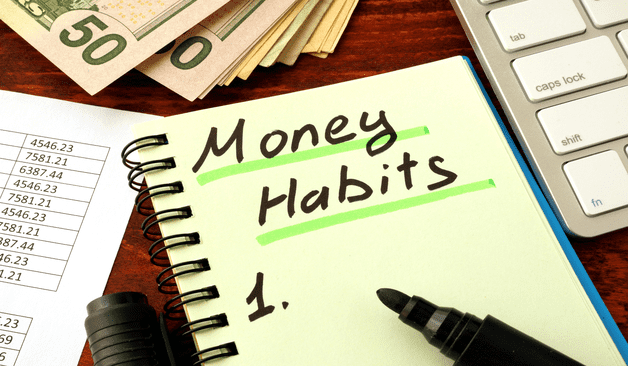
Five Destructive Money Habits You Should Avoid
Old habits die hard, especially when it comes to saving, spending and investing. At a young age, most people have less responsibilities and liabilities, and it may be difficult to understand the importance of saving enough. However, once people get into the habit of splurging all their income, it becomes difficult to grow out of it.
As you grow older, these habits could put you in a bad financial shape. Remember that you can earn only a limited amount of money but there is no limit to spending, unless you control yourself. You need to balance this out in a better way so that you never fall short of money. There are many examples across the world which suggest that even billionaires go bankrupt because of destructive money habits or bad money decisions.
Here are some bad money habits you should stay away from.
Biting off more than you can chew
Spending more than you earn is the most dangerous financial habit. It can easily lead you into a big debt trap. There are attractions all around.
When you visit a mall, you will find goodies displayed near the checkout line of stores of the newest electronic good displayed prominently at another store. Such displays are not done just to decorate the store but are tactics to attract customer’s attention and interest. Such tactics can nudge you to spend more money than you planned before you leave the store.
It’s also common to see people to buy things simply to impress others. For instance, a small family car may serve the purpose for you, but buying a big car, even if a big loan is required for that, may be an aspiration if your friends or colleagues have big cars.
At times, people end up doing impulsive shopping either because they are bored or upset. Many a times these are done through online shopping apps. These apps may also lead you to splurge with offers and discounts.
A lot of people fall into the trap and end up buying things they don’t really need. Avoid spending on unwanted things and save for future.
Using credit card as a loan
Have you ever given a thought how credit card issuers make money? Let us tell you how that happens. If you use a credit card for your shopping and pay off the credit amount, you are not a special customer for credit card company because you do not allow them to earn money. Credit card companies make money from those customers who either do shopping on EMI or keep revolving the credit balance.
Typically, a credit card charges you 15-20 per cent if buy things on EMI. Similarly, if you do not pay the credit amount in full, they charge you 2.5-3 per cent monthly on the full amount. This 2.5 -3 per cent might look like a small amount, but if you calculate it on an yearly basis, it may work out in the range of 30-36 per cent.
The late fee is charged if you delay the repayment. This late fee is in addition to the interest rate charged. If you are using a credit card, ensure that you pay your bills on time and in full.
Living pay cheque to pay cheque
Stop making the excuse of not earning enough to be able to save. If that is indeed the case, you need to start acting upon it and look at ways to increase your income and reduce your spending.
This saving will help you at the time of crisis and to meet your financial goals. Some of the people who were laid off during the pandemic but had the habit of living pay cheque to pay cheque suffered. If anything, the period should be a lesson for people to start saving.
Not investing at all
Simply saving every month and letting the money lie in your bank savings account may not serve the purpose. It is important to invest the money. It’s true that money does not grow on trees, but money grows when you invest it. Considering the higher inflation and the lack of any social security in India, you should start investing in productive asset classes such as equity for your financial goals.
Not buying insurance in time
Distress does not come with an appointment. It may come at any point in time, so you need to be prepared. Many people keep procrastinating buying insurance thinking they don’t need it. The fact is that the need for an insurance may arise at any point of time. So, buy life and health insurance before any disaster comes knocking at your door.
Disclaimer: ICICI Securities Ltd.( I-Sec). Registered office of I-Sec is at ICICI Securities Ltd. - ICICI Venture House, Appasaheb Marathe Marg, Prabhadevi, Mumbai - 400025, India, Tel No:- 022 - 2288 2460, 022 - 2288 2470. I-Sec is a Member of National Stock Exchange of India Ltd (Member Code:-07730) and BSE Ltd (Member Code :103) and having SEBI registration no. INZ000183631. Name of the Compliance officer (broking): Mr. Anoop Goyal, Contact number: 022-40701000, E-mail address: complianceofficer@icicisecurities.com. Investment in securities market are subject to market risks, read all the related documents carefully before investing. The contents herein above shall not be considered as an invitation or persuasion to trade or invest. I-Sec and affiliates accept no liabilities for any loss or damage of any kind arising out of any actions taken in reliance thereon. We are distributors of Insurance and Mutual funds, Corporate Fixed Deposits, NCDs, PMS and AIF products. The non-broking products / services like Demat, Mutual Funds, Insurance, FD/ Bonds, loans, PMS, Tax, Elocker, NPS, IPO, Research, Financial Learning etc. are not exchange traded products / services and all disputes with respect to the distribution activity would not have access to Exchange investor redressal or Arbitration mechanism.










